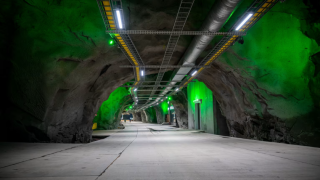The Swedish Prosecution Authority ruled that the cable cut, which occurred in late January, was not an act of sabotage and that a combination of weather conditions and “deficiencies in equipment and seamanship” contributed to the cable break.
Swedish authorities had seized the ship, analysing its equipment to determine if the cut was deliberate. The seizure order on the ship has now been lifted, though the investigation remains ongoing to “determine whether there are other crimes that can be suspected in connection with the cable break”.
Subscribe today for free
Prosecutor Mats Ljungqvist said: “After interrogations, seizures that have been made and analysed, and crime scene investigations that have been carried out, we can say with certainty that this is not a case of sabotage.
“At the same time, we have been able to establish that it is the ship that was seized that caused the cable break.”
The severed capable was owned by Latvia’s State Radio and Television Centre (LVRTC), residing at a depth exceeding 50 metres.
Swedish naval forces tracked down the ship, with the country on high alert following cable cuts last year that saw unfounded finger-pointing at Russia.
Latvia is working with Sweden and NATO allies to exchange information on the incident as the cable cut investigation continues.
“I would particularly like to highlight the Coast Guard and the Police Authority as well as the Armed Forces,” Ljungqvist said. “Without the good cooperation, the investigation would not have been able to reach the investigative stage that we have now reached.”
RELATED STORIES
Latvia probes latest Baltic subsea cable cut as naval forces investigate ship
Challenges and opportunities in diversified subsea cable routes
Fragile lifelines: The rising threats and resilience of submarine cable networks






